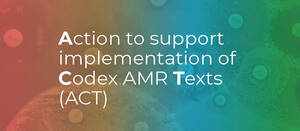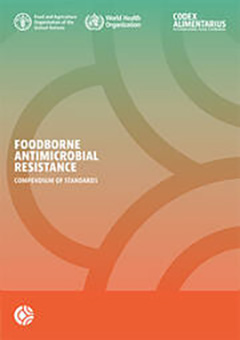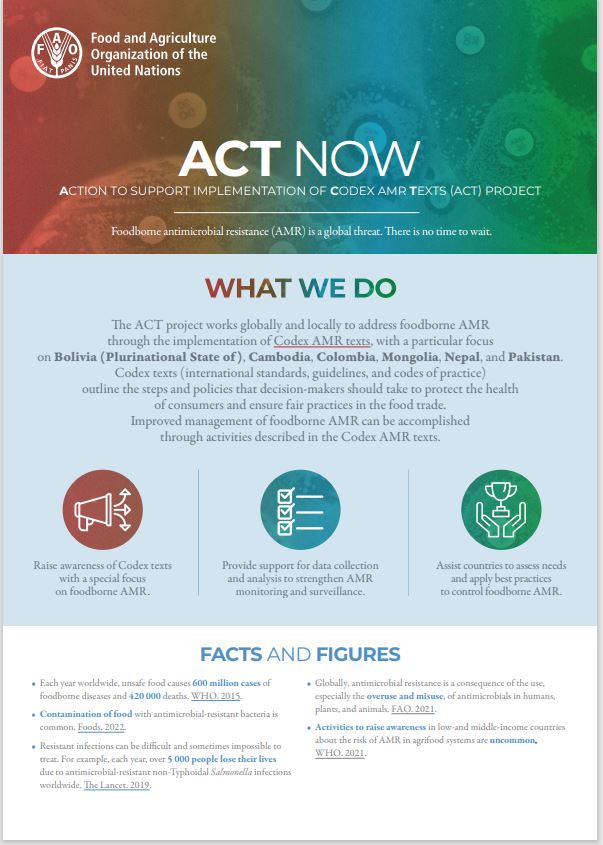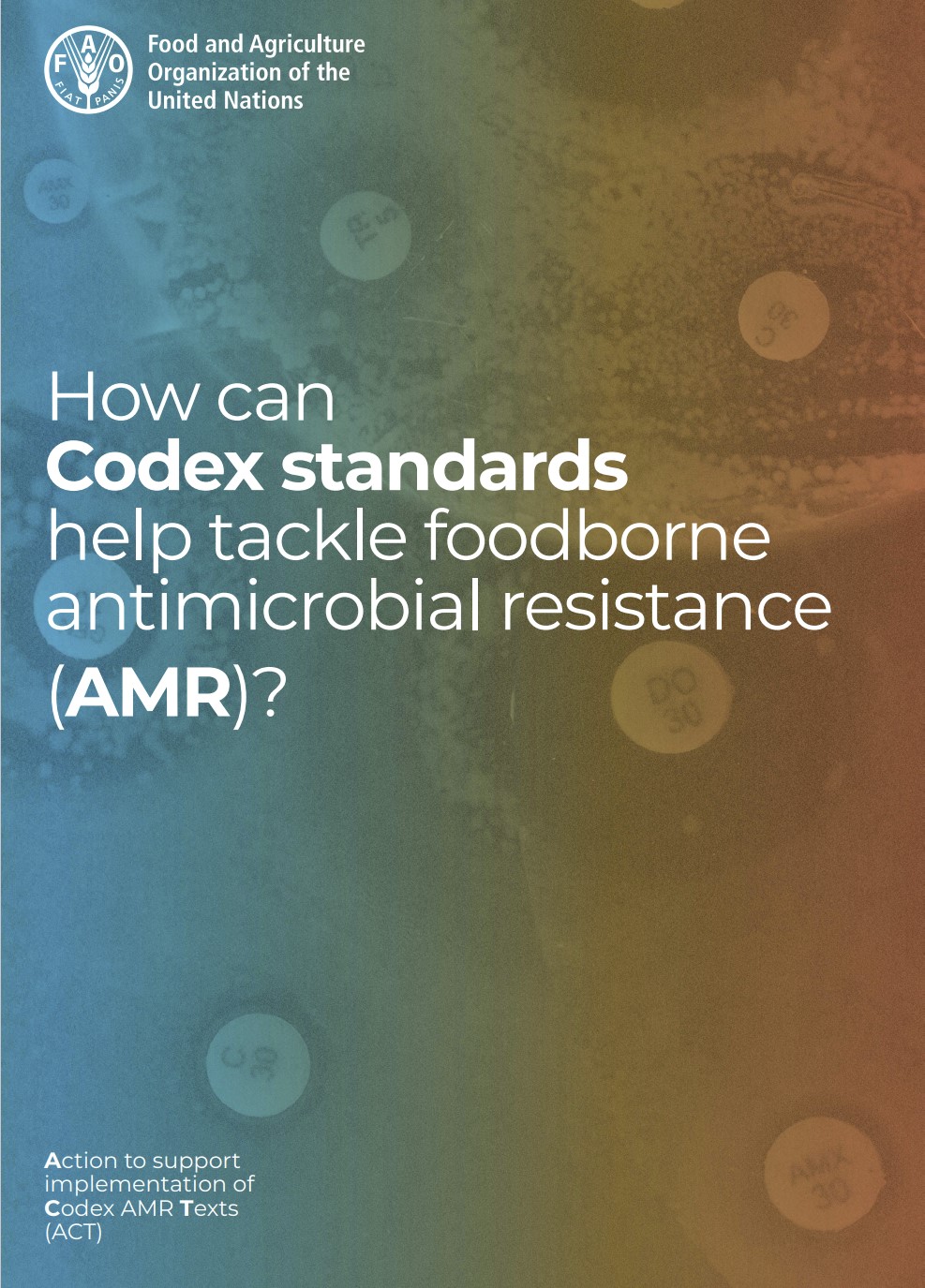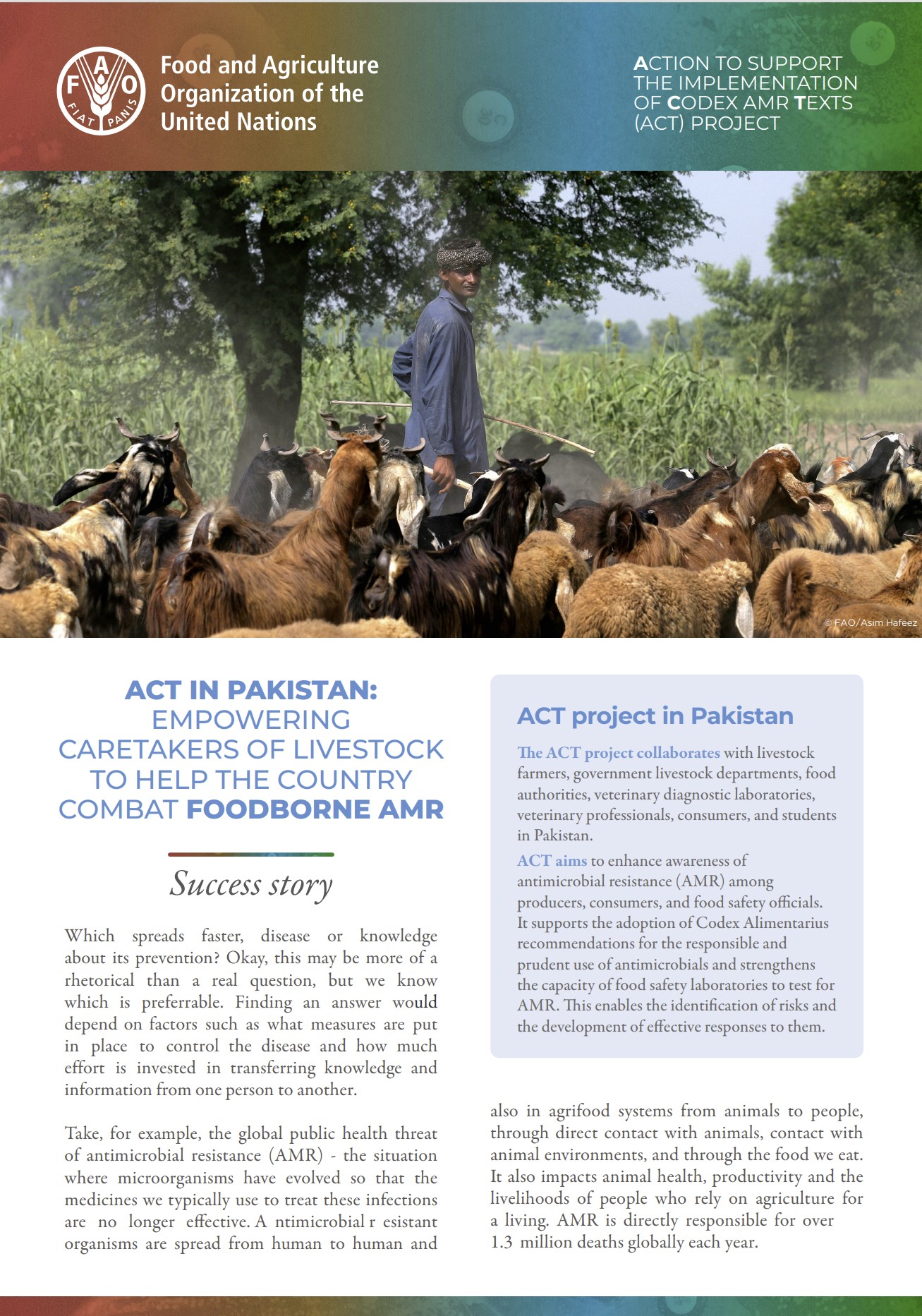 Résistance aux antimicrobiens
Résistance aux antimicrobiens
La résistance aux antimicrobiens est une menace majeure à l'échelle mondiale, qui suscite des préoccupations grandissantes pour la santé humaine et animale. Elle a aussi une incidence sur la sécurité sanitaire des aliments et sur la sécurité alimentaire et le bien-être économique de millions de ménages d'agriculteurs.
L'alimentation joue un rôle important dans l'apparition et la propagation de la résistance aux antimicrobiens. La présence de micro-organismes résistant aux antimicrobiens dans les systèmes de production agricole et le long des filières alimentaires représente une voie d'exposition potentielle pour tout un chacun. Dans le secteur agricole, l'adoption de bonnes pratiques d'hygiène est fondamentale non seulement afin d'assurer la sécurité sanitaire des aliments, mais aussi en vue de s'attaquer à la résistance aux antimicrobiens.
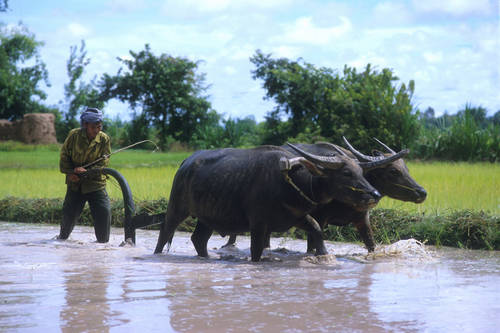
Rôle du Codex face à la résistance aux antimicrobiens
Les micro-organismes (bactéries, parasites, virus et champignons) présents dans l'alimentation constituent des risques potentiels concernant la sécurité sanitaire des aliments. La relation entre l'utilisation d'antimicrobiens (agents qui permettent de tuer des micro-organismes ou d'arrêter leur prolifération) chez les animaux destinés à la production alimentaire et l'émergence de micro-organismes résistants dans la filière alimentaire suscite des préoccupations et a fait l'objet de nombreuses consultations nationales et internationales.
L'emploi d'antimicrobiens chez les animaux destinés à l'alimentation humaine (y compris dans le secteur aquacole) et dans l'horticulture, ainsi que chez l’être humain, contribue à divers degrés à la résistance des micro-organismes aux antimicrobiens chez les humains, selon les micro-organismes et les régions.
Lorsque les êtres humains consomment des aliments dans lesquels des micro-organismes résistant aux antimicrobiens sont présents, certaines espèces de micro-organismes peuvent causer une maladie. Des déterminants de la résistance aux antimicrobiens peuvent aussi être ainsi transmis à d'autres micro-organismes, y compris des pathogènes humains.
Reconnaissant qu'il fallait apporter une réponse plus générale et multidisciplinaire aux questions soulevées par la résistance aux antimicrobiens, le Codex a créé en 2006 un premier groupe chargé de ce sujet: le Groupe intergouvernemental spécial du Codex sur la résistance aux antimicrobiens. L'objectif était d'élaborer des avis scientifiques sur la manière d'évaluer et de gérer les risques pour la santé humaine liés à la présence de microorganismes résistant aux antimicrobiens dans les produits destinés à l’alimentation humaine et animale, y compris les produits aquacoles, et à leur transmission par ces aliments. Un deuxième groupe spécial a été récemment créé afin de répondre aux préoccupations grandissantes à l'échelle mondiale face à la grave menace que la résistance aux antimicrobiens fait peser sur la santé publique. Il élaborera des avis scientifiques à l'appui d'une gestion cohérente de la résistance aux antimicrobiens tout au long de la filière alimentaire.
Other Divers textes du Codex sur les médicaments vétérinaires et leurs résidus, l'hygiène des aliments ou l'alimentation animale donnent aussi des indications qui contribuent au traitement du problème de la résistance aux antimicrobiens, en empêchant son développement et en minimisant sa transmission par l'intermédiaire de la filière alimentaire.
Textes connexes du Codex
Actualités

Experts gather in the Republic of Korea to tackle foodborne antimicrobial resistance

FAO presents actions for different stakeholders to combat foodborne antimicrobial resistance

ACT project in Mongolia / Strengthening collaboration in combating foodborne antimicrobial resistance

Leading the way in food safety: Interview with Dr. Yu-Kyoung Oh, Minister of Food and Drug Safety, Korea

ACT project in Nepal / Training on implementation of Codex antimicrobial resistance standards

ACT project: Cambodia sets priorities to combat AMR
Faits saillants
- Chaque année, 500 000 décès environ sont liés à la résistance aux antimicrobiens. Des antimicrobiens appartenant à 27 catégories différentes sont administrés aux animaux.
- Total En 2011, le marché mondial de la santé animale s'élevait à 22 milliards d'USD.
- Seulement 42 pays ont un système de collecte de données sur l'utilisation des antimicrobiens dans le secteur de l'élevage (OIE).
- On ne dispose d'aucune donnée normalisée sur l'utilisation mondiale d'antimicrobiens dans le secteur de l'élevage.
Source FAO
Video
ACT Video 2023
Disponible également en anglais, espagnol, coréen, cambodgien, népalais, mongol et bolivien.



